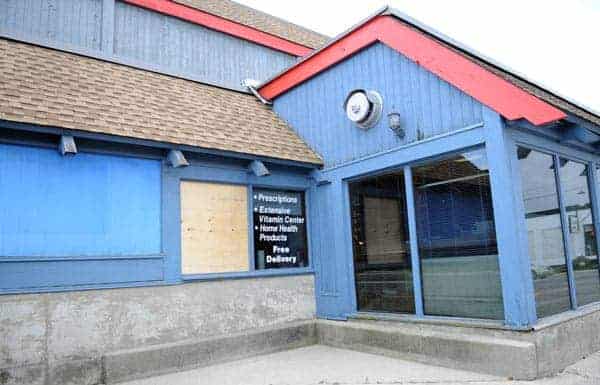When the siren sounds and six fire trucks go racing though Breslau next Thursday, don’t panic.
On November 13, the Township of Woolwich, the Region of Waterloo, the Region of Waterloo International Airport, the Waterloo Regional Police Service and the City of Kitchener Fire Department will be participating in an emergency exercise.
The exercise will simulate an emergency situation involving a passenger aircraft and the Safety-Kleen industrial site in Breslau.
Woolwich Street in Breslau will be closed from 8:43 a.m. to 11 a.m. for the exercise.
Dale Martin, Woolwich deputy fire chief and community emergency management coordinator, said they’re mandated by the province to do the exercise annually, but this year they expanded to test the Woolwich plan and regional plan along with the airport and Safety-Kleen. He said Safety-Kleen has just redeveloped their plan so they want to make sure that it works.
“We’re also testing our emergency operations centre (EOC),” Martin said. “Breslau is our alternative EOC, which is brand new. We want to test that and make sure it works. Our primary EOC is the town hall. The secondary EOC we’re moving from St. Jacobs to Breslau, so we’re not on the same grid as Elmira.”
Of the six fire stations in Woolwich, they plan to use three to respond to the “incident.” The details of the emergency exercise are being kept under wraps, in order to keep the exercise as realistic as possible.
They’ll also be testing a product called web EOC, which is used for managing disasters and allows communication between all the EOCs as the emergency is happening. That way they’ll be able to track anything that they’ve done to rectify the situation.
“This past winter we had the ice storms and our biggest problem was tracking all the issues that were coming into us, like trees on hydro lines,” Martin said. “So we would report that out but we never got information back that it was looked after. This web EOC will help us keep track of that.”
Observers will be watching as the mock disaster unfolds and Martin will file a report, as required by the province by the end of the year. He said they’re trying to determine the gaps in their plan, so they can resolve them before a real, large emergency happens.
Rick Pedersen, Woolwich fire chief, said crews are preparing by making sure their skill-sets are up to date. They’re also focusing on communicating between other agencies because communication is always a concern.
“You have to practice until you get good at it and we don’t want to run into these situations without making sure that we’ve covered all bases,” Pedersen said.
The last plane crash near the Region of Waterloo International Airport was in August of 2012 and the last helicopter crash was in November 2011.
Martin said they’ll send a message out through their phone messaging system indicating they’re going to be having an exercise. During the exercise the siren will be set off for three minutes. Then residents will also get another telephone call stating it’s only an exercise.
“What we’re really exercising is something on a large scale disaster,” Martin said. “Our responders respond to incidents everyday. Whenever there’s a large emergency you have to start planning where you’re going to put people, how you’re going to look after people, how you’re going to warn people. It’s totally different than their everyday jobs that they do.”
There are three levels of response, depending on how many passengers are on the plane. The exercise will be a level two. Pedersen said they’ve never had a level two emergency at the airport.
Other crews responding are the airport’s firefighting truck and the City of Kitchener’s aerial unit. He said they’re testing the guideline for a mutual response to an aircraft disaster.
He said these types of exercises are all training for the different emergency crews and making them aware. You can make a mistake at these exercises and learn from them, instead of making a mistake in real life when someone might get hurt.
“There aren’t many major incidents at the airport and that’s one the problems. You have to practice and train because it’s not a regular situation,” Pedersen said.








